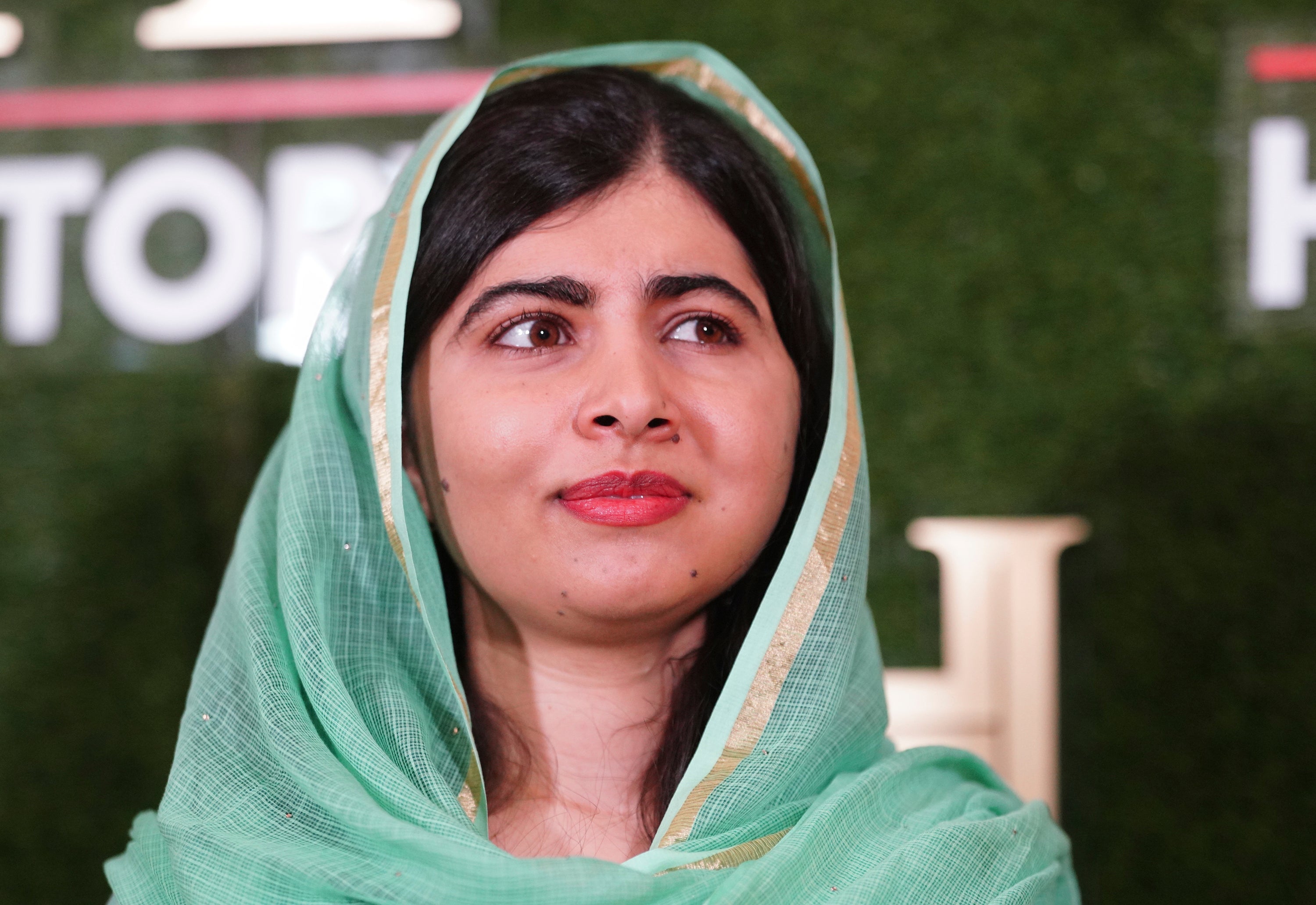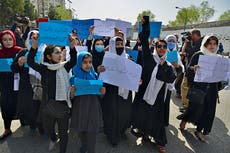Malala: I know progress can be slow but never expected ‘complete reversal’ of women’s rights
Nobel Prize laureate says she never ‘expected to witness a complete reversal – an entire country of girls locked out of school’

Nobel prize winner Malala Yousafzai has spoken of her despair at the “complete reversal” of education and rights for women in Afghanistan under the Taliban.
“Ten years ago, millions of Afghan girls were going to school,” she told an audience at the United Nations House in Abuja, Nigeria.
“One in three young women were enrolled in university. And now? Afghanistan is the only country in the world to ban girls and women from seeking education.
“Even as a teenager, I understood that progress could be slow – but I never expected to witness a complete reversal, an entire country of girls locked out of school, trapped in their homes and losing hope.”
In 2012, Ms Yousafzai was shot by a Taliban gunman who strongly opposed her vocal activism surrounding the education of women. She was 15 years old at the time and was returning home after taking an exam when she was shot in the head. She was later transferred to the Queen Elizabeth Hospital in Birmingham, England.
She has previously called on authorities to “step forward more boldly” in their backing for Afghan women now forced to live under the Taliban.
She recounted her own incident of suffering brutality at the hands of the Taliban as she spoke in Nigeria on her birthday. “I spent two years of my childhood under the terrorism of Taliban, displaced from my home and banned from going to school because I was a girl.”
“I was shot and nearly killed for speaking out against these injustices. I did not know if my first speech at the UN would be my last – my only chance to ask the world to send every girl to school,” Ms Yousafzai said.
Referring to her speech, Thomas West, the US special representative for Afghanistan, said the women and girls in Afghanistan deserve full access to education to realise their potential.
“On #MalalaDay, we recognise advocacy for education rights. Afghan women and girls are a tremendous asset to the future of Afghanistan and deserve full access to education to realise their potential,” he said in a tweet.
Hours after the Taliban seized control of Afghanistan at an unprecedented speed in August 2021, the education activist expressed shock and concern for women and minorities in the disturbed region.
The Nobel Prize laureate also asked for action from global agencies to safeguard refugees and civilians.
“We watch in complete shock as the Taliban takes control of Afghanistan. I am deeply worried about women, minorities and human rights advocates,” she had said.
In a call to action, the Pakistani activist added: “Global, regional and local powers must call for an immediate ceasefire, provide urgent humanitarian aid and protect refugees and civilians.”
Join our commenting forum
Join thought-provoking conversations, follow other Independent readers and see their replies
Comments




Bookmark popover
Removed from bookmarks